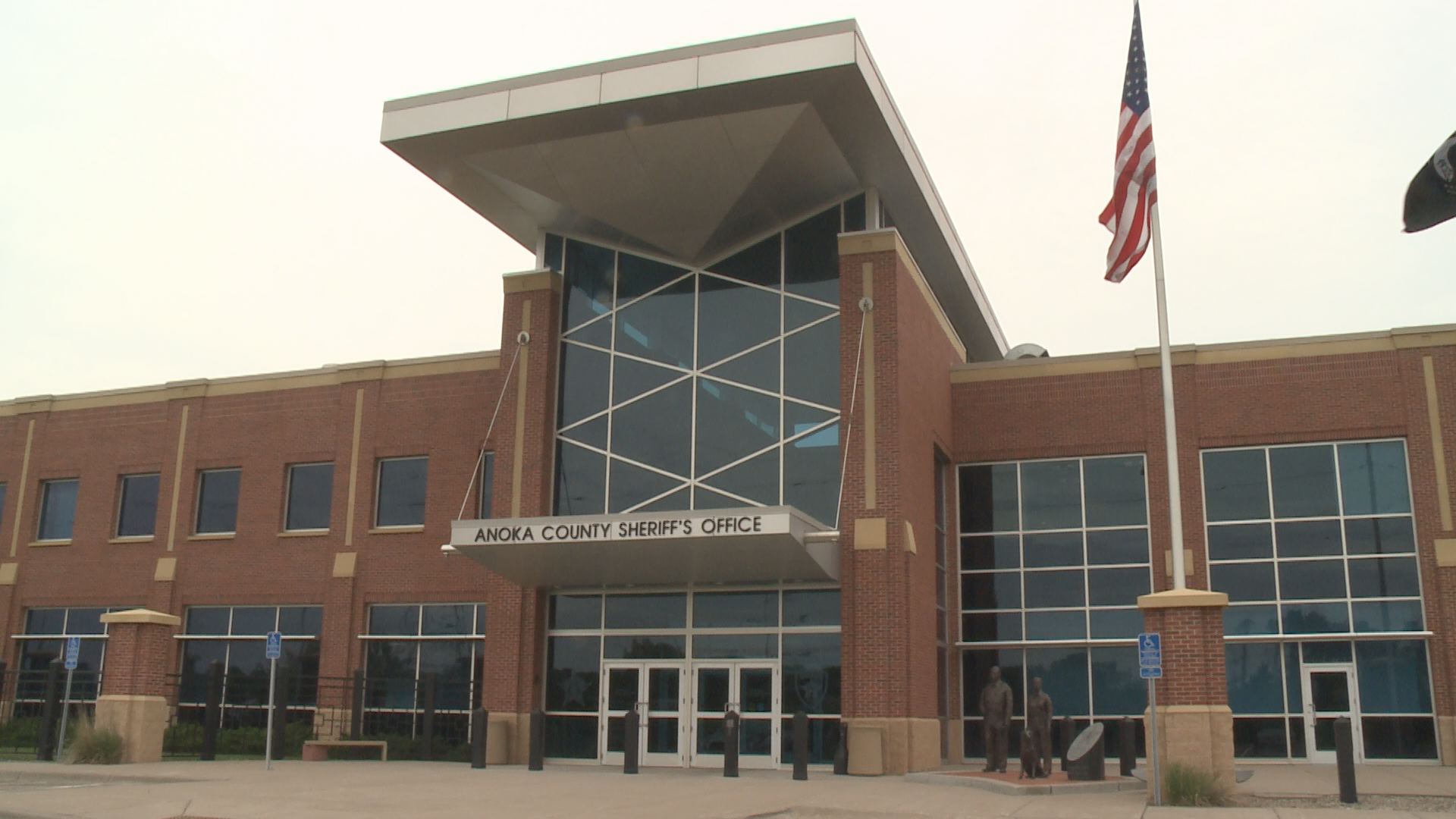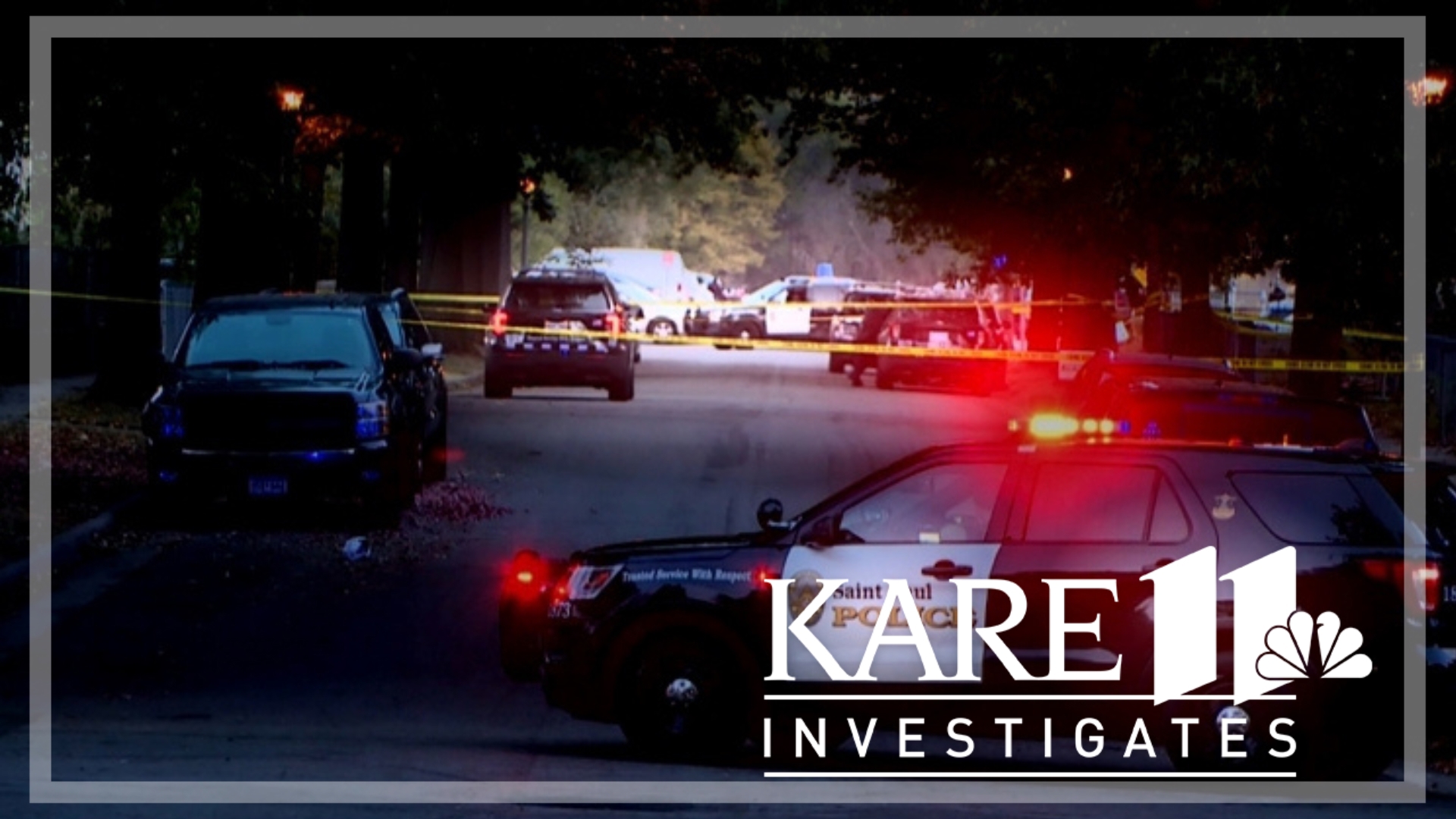MINNEAPOLIS - A joint investigation by USA Today, KARE 11 and other TEGNA stations nationwide reveals that tens of thousands of rape kits – including many in Minnesota – have never been tested, even though they may hold potentially valuable DNA evidence that could identify criminals or exonerate the innocent.
In Minneapolis, a police officer has been assigned full time to try to determine how many kits sit untested in the department's evidence rooms.
Minneapolis is just one example of a nationwide problem. National advocates estimate that more than 400,000 rape kits are still sitting in police property rooms around the country. It's such a big issue Congress has earmarked $41 million to help law enforcement agencies around the country test kits.
In the last several years, when cities like Cleveland and Detroit started sending previously untested kits to the crime lab, DNA testing led to the identification of serial rapists and suspects in other crimes.
"It's not just about one victim. It's about potentially identifying a pattern of sexual assaults that's happening out there," says Nancy Dunlap, the former head of the Minneapolis Police Department sex crimes unit. Dunlap believes more rape kits should be tested.
Starting in February, KARE 11 and USA Today began asking metro area law enforcement agencies whether they had any untested kits. Some departments told us they have no backlog and have tested every rape kit.
But other agencies report dozens, even hundreds of untested kits dating back to 2000.
And Minnesota's largest police agency isn't sure how many untested kits it has.
When we first asked the Minneapolis Police Department for that information, officials said we'd need to pay "an initial down payment of $4,800.00" to begin counting – and as much as $14,000.00 if the counting process took three months to complete.
In May, Governor Mark Dayton signed a bill into law requiring all law enforcement agencies in Minnesota to conduct an audit of untested rape kits by August 1st.
Earlier this year Minneapolis assigned an officer to begin identifying untested kits.
Here are the results of our survey of law enforcement agencies:
![Rape Kit Database Display [ID=30188521]](/Portals/_default/Skins/PrestoLegacy/CommonCss/images/embed.jpg) Close to home
Close to home
Carrie Fringer remembers every detail of her rape.
"I remember his voice," she said, "I remember his face."
Ten years ago Carrie was raped and stabbed by a stranger near St. Anthony Main. She talks about it openly because she wants people to know rape - is real.
"It's your worst nightmare," Carrie said.
After her attack, Carrie had a sexual assault forensic exam – a rape kit - done at the hospital. The evidence was sent to the state crime lab.
Carrie's attacker left behind a DNA profile. While DNA might one day put a name to the man who changed Carrie's life, so far the profile hasn't produced a hit in the national DNA database.
That national database is missing the DNA of some rapists, however, because cities like Minneapolis and others haven't tested all of their kits.
"There's a lot of parts to counting," Minneapolis Police Commander Bruce Folkens said.
In addition to simply counting the number of untested kits, Folkens says Minneapolis is also trying to identify old cases that should get a new look using today's investigative standards, including DNA testing.
"The police department has a strong interest in knowing what we've got and what we don't have," Folkens said.
With an estimated 500 sexual assaults reported every year in the city, Folkens says determining what kits were tested - and which ones should be - is complicated. Minneapolis has already found several kits not originally tested that now will be. Meanwhile, Duluth recently entered into an agreement to send 10 inactive cases to the BCA crime lab at a time.
This isn't the first time Minneapolis has given long forgotten sexual assault cases another look.
With the help of a federal cold case grant, Minneapolis together with the Hennepin County Attorney's office reviewed hundreds of rape cases in 2009.
Nancy Dunlap, the former head of the MPD sex crime unit, says kits that had never been tested were sent to the crime lab.
She says the results included 155 "hits" - DNA profiles that matched known criminals already in the national DNA database.
"I think all kits should be tested as long as there's a criminal report made," Dunlap said.
Why aren't all kits tested?
If testing rape kits can help identify criminals why are so many not tested?
Police agencies told KARE 11 that many kits that didn't get tested involved cases where the victim didn't follow through with an official crime report to police. Some other kits aren't tested if a victim recants or if prosecutors decide not to pursue charges.
Most agencies said if the suspect is already known and there's no question about identity, DNA can have little evidentiary value - at least for that case.
"The actual existence of the suspect's DNA may not be a question," said Commander Brian Podany with the Anoka County Sheriff's Office. He says kits in Anoka County are always tested in cases where the suspect is unknown or there's a question about what happened.
Anoka County, which investigates sexual assaults for the county and 21 cities and townships, has 416 untested rape kits that go back 15 years.
How much additional testing should be done – and how to pay for it – likely will be an issue for the Minnesota legislature in 2016. After local police and sheriff's departments complete their counts this fall, the backlog information will be reviewed by the BCA and the results forwarded to state officials.
But what if the rape report is false?
Podany wonders whether it's fair for someone's DNA to be in a national crime database when it's later determined a crime didn't actually happen.
"Do we want to do everything we can to get rapists off the streets – absolutely. But we're also looking at government collection of data," Podany said.
On the other hand, many victim advocates say if a rape victim takes the difficult step to have evidence collected in a sexual assault exam and then reports the attack to police, the kit should be tested.
Carrie Fringer says the exam can be invasive and traumatizing.
She went through it after she was raped. Now she is a sexual assault nurse examiner herself at Hennepin County Medical Center, helping victims in the same hospital where a nurse helped her.
"It was challenging to start to learn how to deal with my own emotions while I'm trying to care for a victim," Carrie said.
She believes police owe it to victims – now survivors – to test and still hopes the DNA profile found on her one day brings a ten year ordeal to an end.
"I think it would bring closure to know that he's no longer out there hurting other people."


